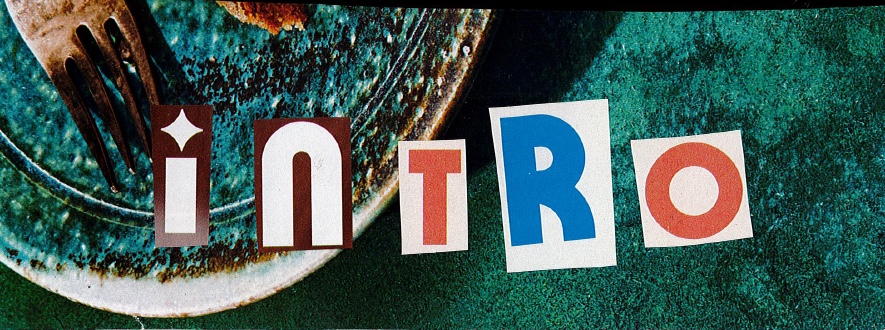Origins
Information derived from A Brief History of Ancient Astrology by Roger Beck.
Astrology is an ancient study that is nearly impossible to track directly to one specific origin. Because we are primarily discussing western astrology in this project I will focus on highlighting the roots of western astrology and how it transformed into the modern practice that we see today. I want to acknowledge the diverse practices of astrology in non-western cultures such as Vedic Astrology in Hindu Cultures, Native Astrology in Indigenous cultures, and the Chinese Zodiac. Various practices of astrology provide new insight and they can not all be grouped as one in the same. Each practice has unique cultural roots and methods of being which are impactful and invaluable in their own ways.
The uncovering of western astrology has been derived all the way back to the Ancient Mediterranean. There are many original horoscopes which have been traced specifically back to ancient Egypt. Many of the original documents of astrology showed that readings were focused on identifying outcomes in one’s future life – more of a predictive astrology. Oftentimes Greek astrology is identified as the root of what we now consider modern Astrology in the west, however Greek astrology is actually dependent on Babylonian astrology. Babylonian astrology originally was used as a tool for predicting large scale issues such as famine, draught, war, rebellion, etc… Astrologers were employed to advise leaders on what collective situations they may need to prepare for in order to protect their civilians or their wealth.
Astronomical historians have categorized the various archives of astrology from Babylon into two categories – the mathematical and nonmathematical. Some of the nonmathematical archives reflect what we would consider today to be horoscopes. These horoscopes have been traced back to as early as 410 BCE. Beck argues that it is clear that astrology was used on the same lateral field as astronomy in the Babylonian era. The knowledge of astronomy is essential to the creation of astrology in that it relies on the image of the sky at any given moment to understand the significance of the planetary aspects and placements. However, oftentimes modern astrology is criticized for its lack of scientific reasoning. Myself and many astrologers would argue that astrology is a spiritual practice that is derived from a scientific one. They are not mutually exclusive but instead astrology depends on science.
Towards the Hellenistic era, astrology was adapted into the Greek and Egyptian cultures of the time. During the time of the Hellenistic there was a great deal of knowledge being transferred between the east and west, and astronomy and astrology were one major category being shared. Hellenistic astrology is described as the Astrology of fate and fortune, fate is defined as the abstract substances that make up the world and fortune is the material. This practice of fate and fortune is especially focused on the sun because the sun is associated with fate becasue of its ability to illuminate the material world. In another section I talk a lot about the origins of sun sign based astrology which is rooted in the ancient Egyptian belief in a sun god. The Greeks valued the work of these older traditions such as Egypt and Babylon and so much of Greek astrology and astronomy reflects many of the techniques and practices from older and more “wise” cultures. Through the Greek use of astrology it became used by more cultures and communities over time. Its imagery and techniques were popularized used within western religions such as early Christianity, and Islam. And it has other lineages in Hindu Vedic astrology, as well as within Chinese folk religion. It’s value across time and culture reflects its influence, however I think many may still be left wondering why it had such an impact and has persevered still today.
Relevance
Over the years, the prevalence of astrology ebbed and flowed, yet it has never been lost. In the 20th century the study and practice of astrology in the west resurfaced and re-popularized in the 1970s. In the late 2010s and today we see that astrology has once again resurfaced and popularized. The New Yorker writes that there is a correlation with astrology resurfacing at times of crisis such as wartime, recession, and even pandemic. This is relevant to me because it directly relates to the way that astrologers in Babylon used astrology as a predictive tool for preparing for crisis. In the 21st century astrology is largely practiced by Millennials and Generation z and by a more diverse community than ever before.
Today astrology has become most popularly a tool for understanding one’s identity and the identities of others. It is more accessible than ever through the use of astrology apps like Co-Star, Charts, and Sanctuary which create an astrological chart for you without your own knowledge of the stars and planetary orbit. These apps and other social media accounts have capitalized on the popularity and it now has become a massive 2.1 billion dollar industry. Obviously in our for-profit society it makes sense that the wealth of the astrology industry has influenced its widespread popularity. But I believe that there is more to that. With apps and social media accounts much of the focus on astrology has been oriented towards identity (I discuss more here on the relationship of astrology along with other identity categories). I defend that this makes astrology especially attractive to groups such as Generation Z and Millennials who are constantly curating and defining their identity through social media. Astrology provides an avenue for understanding and complexifying our identities in a way that feels mythical, spiritual, and other-wordly. Additionally, astrology is extremely popular within queer spaces. As queer spaces became more socially accepted and celebrated in the mainstream, so did astrology.
It is also important to note – in our process of using astrology for pursuing racial justice – that many different leaders have used astrology for guidance. Nazi leaders used astrology to make decisions and movements during World War II, and Ronald Reagen also referred to an astrologer when making large scale decisions as president. I want to shed light on this as a way to say that we have no control over the way in which astrology has been and continues to be interpreted. Its popularity is not subjective to one group of people or one mindset, valueset, or approach to life. It may have even been interpreted to validate some of the most destructive and violent actions by governmental leaders. However we also have control over how we choose to use it today.
Whether or not you see astrologer as a fad, its existence over time speaks a great deal to its attraction. In a world where more and more young people are beginning to move away from systems of organized religion, astrology has provided access for many to connect with their spiritual interests within a diverse community of astrologers, many of which use their knowledge to advocate for and inspire social justice work.
I encourage you to explore the astrologers who I cite throughout my presentation:

